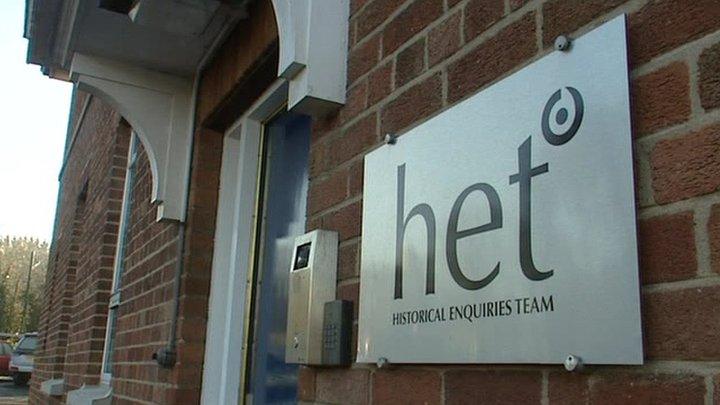PM: Northern Ireland system investigating past 'unfair'
- Published
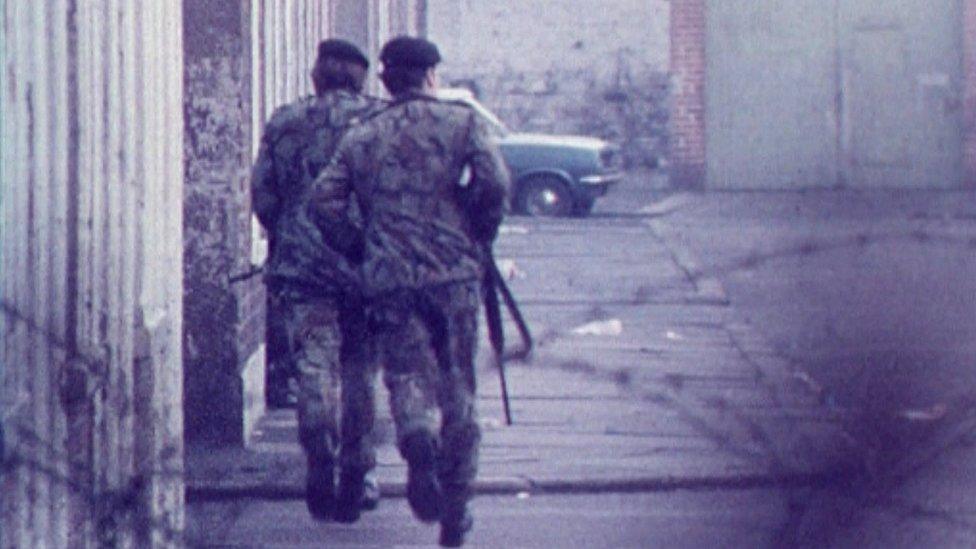
The prime minister has said the system for investigating the past in Northern Ireland is "unfair".
Theresa May said only people in the "armed forces" or "law enforcement" were being investigated.
However, in 2017, figures obtained by the BBC challenged claims that Troubles investigations unduly focused on those committed by the Army.
On Tuesday, it was revealed a proposal to prevent soldiers being prosecuted was dropped from an NIO consultation.
Senior members of the cabinet raised concerns that military veterans might not have enough protections under the current proposed system.
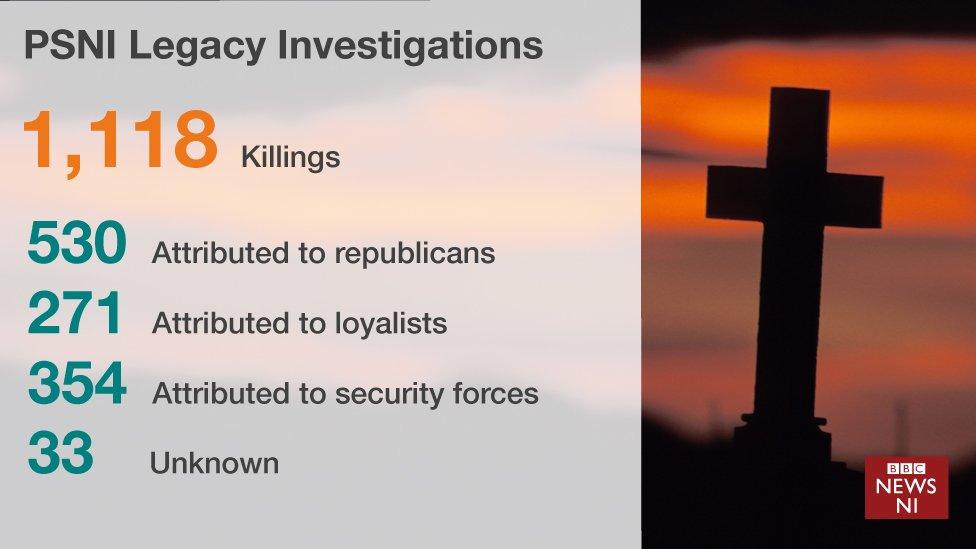
'Patently unfair'
At Prime Minister's Questions on Wednesday, Mrs May said the issue of a statute of limitations was "very important".
"At its heart, is the support and gratitude that we owe all those who have served in our armed forces," she said.
"The situation we have at the moment is that the only people being investigated for these issues are those in our armed forces or those who served in law enforcement in Northern Ireland.
"That is patently unfair. Terrorists are not being being investigated. Terrorists should be investigated and that is what the government wants to see."
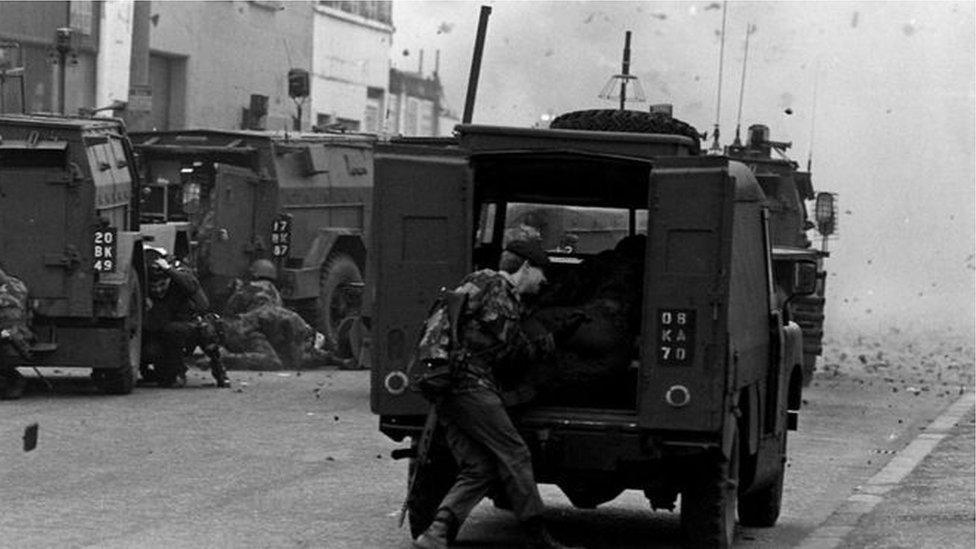
The Police Service of Northern Ireland's legacy branch is investigating 354 killings by the security forces
In February 2017, Police Service of Northern Ireland (PSNI) figures showed that investigations into killings by the Army accounted for about 30% of its legacy workload.
The police legacy branch is re-investigating 1,118 deaths not previously reviewed or completed by the now defunct Historical Enquiries Team (HET).
Of those killings, 530 were carried out by republicans, 271 by loyalists and 354 by the security forces.
Paramilitaries
Earlier during Northern Ireland Questions, the Secretary of State said the status quo regarding the legacy of the Troubles "sees a disproportionate emphasis on the actions of the military and law enforcement".
Karen Bradley added there is "very little emphasis on the actions of paramilitary terrorists".
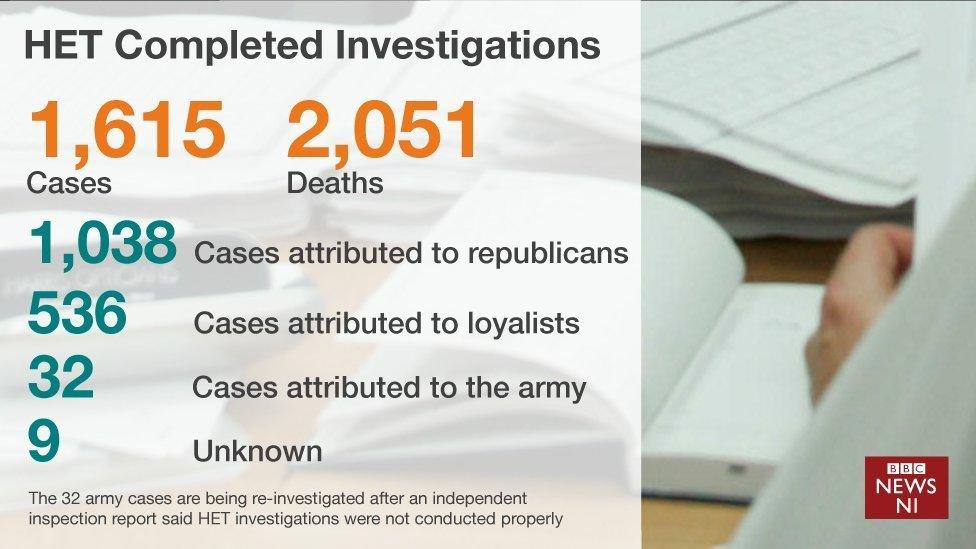
She said she wants to see a consultation on creating new institutions so those concerns can be addressed.
Mrs Bradley was answering a question from the Conservative chair of the Northern Ireland Affairs committee, Dr Andrew Murrison.
He expressed concern that there is a danger the institutions envisaged under the Stormont House Agreement might act "against the interests of servicemen and former members of the security forces and give an unfair advantage to former paramilitaries".
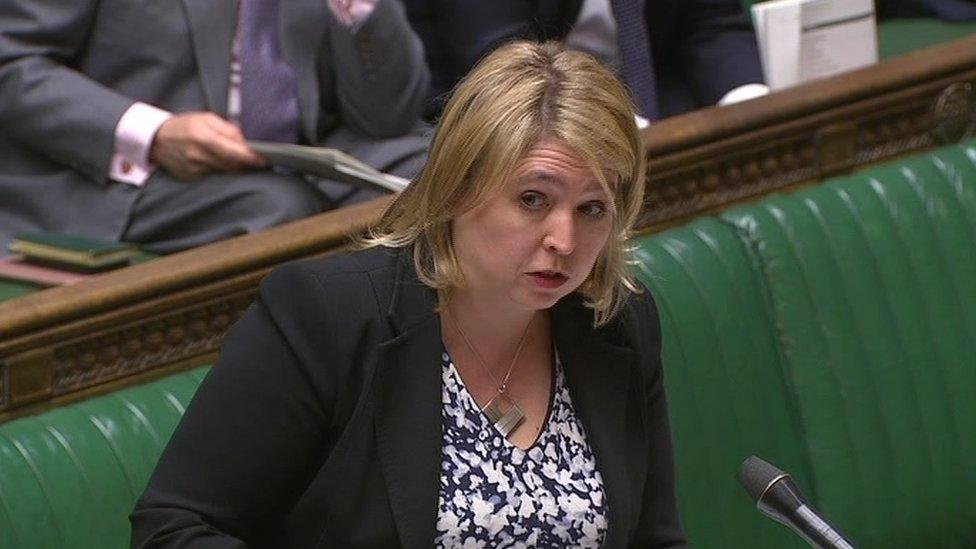
Karen Bradley said she wants to see a consultation to address people's concerns
Dr Murrison said that without checks and balances the new institutions might contribute to a form of historical revisionism portraying the security forces in an unfair light.
The Conservative MP, Mark Francois, told Mrs Bradley many of his colleagues would "not be prepared to traipse blithely through the lobbies in order to support the setting up of any institution which would scapegoat our military veterans to pander to Sinn Féin".
Mrs Bradley replied that "the status quo is not good enough" and "the only people today getting knocks on the door from the police telling them they face inquests are the military, and we need to change that."

Analysis: Mark Devenport, BBC News NI Political Editor
When Stormont politicians were given drafts of the long awaited legacy consultation document on a confidential basis last week, their understanding was that a full public launch of the process would follow within days.
However that was before Tuesday's cabinet spat, during which other ministers took Karen Bradley to task for proceeding without a specific question on the controversial statute of limitations proposal.
The Northern Ireland Office had e-mailed other departments some time ago and thought there were no objections.
The plan had been to have no specific question about the statute of limitations but to include an "open chapter" in which respondents, including veterans' groups, could have made any suggestions they wanted.

Amnesty
Earlier on Wednesday, the DUP's Sir Jeffrey Donaldson said the UK government should consider introducing a law protecting soldiers in wars from prosecution.
The MP said a statute of limitations "not just focused on Northern Ireland" should be considered for the armed forces.
He added that this conflicts such as those in Iraq and Afghanistan should also be covered.
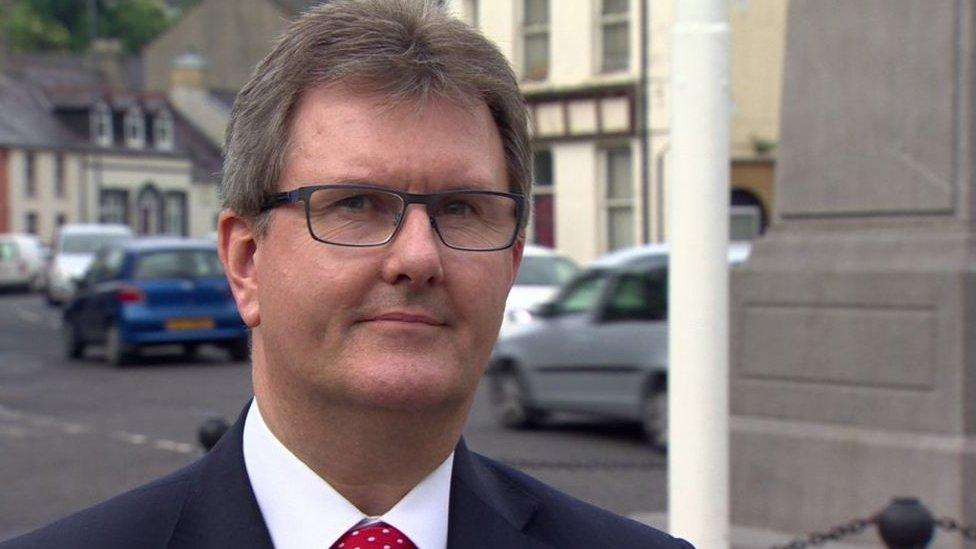
DUP MP Sir Jeffrey Donaldson said a statute of limitations "should be dealt with separately from the legacy proposals"
Sir Jeffrey made the comments on BBC Radio 4's Today programme.
He added, that without a wider policy in place, there could be pressure for an IRA amnesty in Northern Ireland, which he said would be "totally unacceptable".
The DUP is currently supporting the Conservatives in government through a confidence and supply agreement which was struck after the general election in 2017.
Lagan Valley MP Sir Jeffrey said that "a statute of limitations is a much broader issue," adding that his party believes "it should be dealt with separately from the legacy proposals".
"If you introduce a statute of limitations which relates only to Northern Ireland and our troubled past, organisations like the IRA would then press for an amnesty for their members and we believe it would be completely unacceptable to equate members of the armed forces with members of an illegal terrorist organisation," he said.
He added: "The law, not just UK law but international law, does not treat them in the same way as state forces and I don't think we should.
"We are not saying there should be an amnesty - we are saying that a statute of limitations should kick in after a number of years have lapsed in the case of our armed forces."
- Published9 May 2018

- Published8 May 2018

- Published4 December 2014
